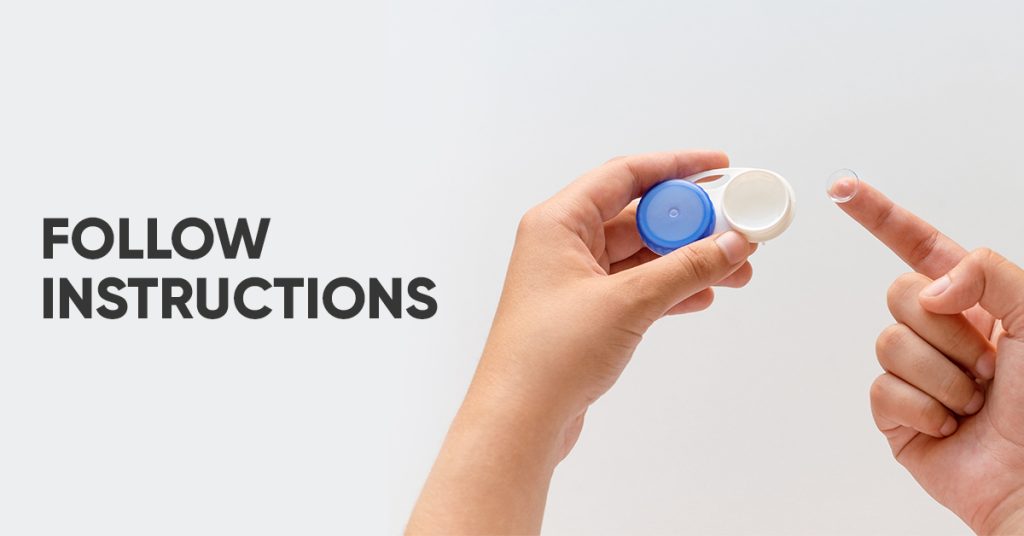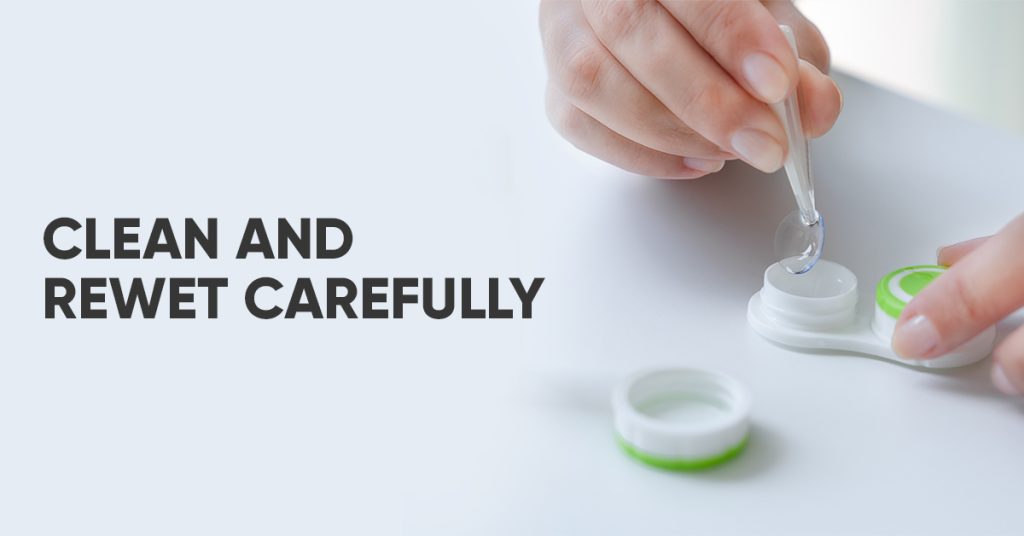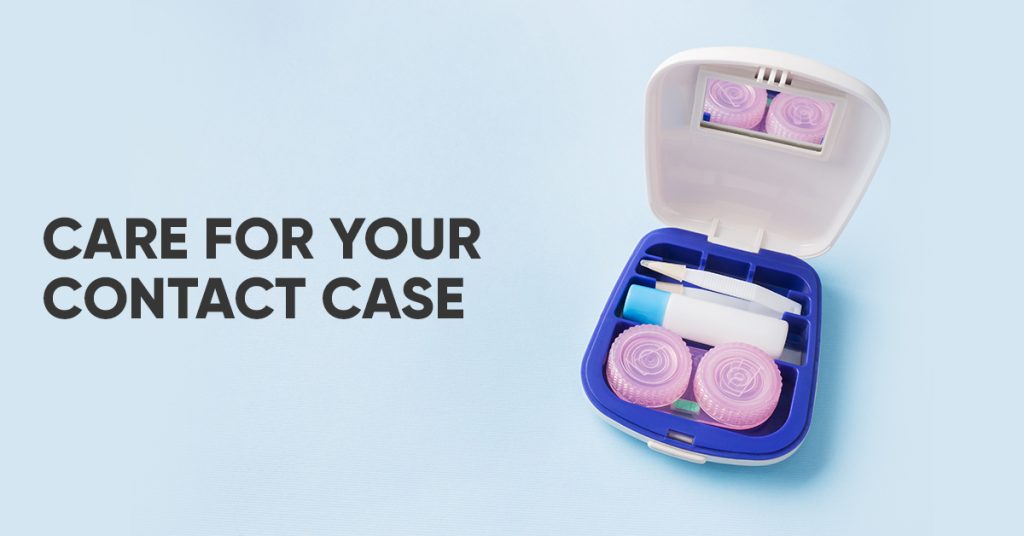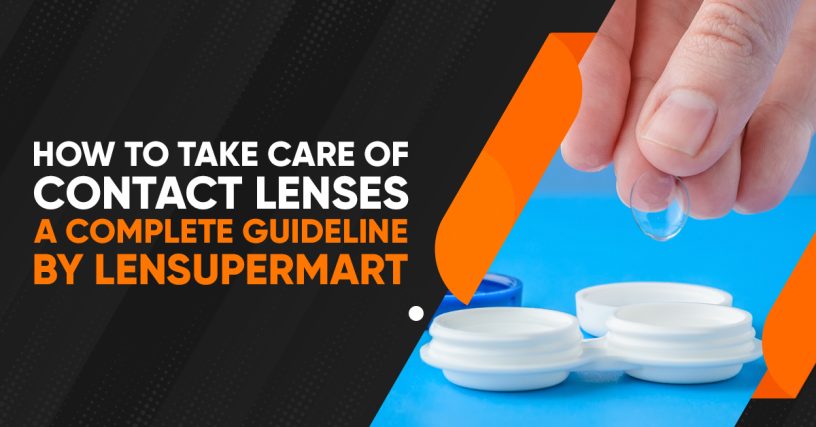Unfortunately, many people have no idea how to take care of contact lenses. Therefore, Lensupermart is going to talk about the wear and care guide for contact lenses today.
For children, Halloween is all about collecting candy from strangers, and for adults, it’s all about selecting a costume that would make everyone say, “Wow, it’s amazing.”
Some people in the costume industry even opt for elaborate contact lenses to complete the look. If we purchase lenses without a valid prescription from an eye doctor, they pose a significant health risk and may even permanently affect our eyesight.
In spite of their usefulness in improving eyesight, contact lenses are not without their dangers. Whether they are worn to correct your eyesight or for a particular event, contact lenses are considered medical equipment by the FDA and so necessitate a prescription.
So, let’s keep going!
Table of contents
Estimated reading time: 7 minutes
Dangers Associated with Contact Lenses
Having outdated contact lenses or ones that don’t fit properly might cause scratches in the eye. Blood vessel growth into the cornea, a potentially blinding disease, is another risk.
Using eye drops might damage your contact lenses. If you wear contact lenses, you should not use eye drops of any type. However, if your eye doctor suggests using wetting drops or preservative-free lubricating drops, you can use those instead.
If your eyes are red, sore, watery, or sensitive to light, you should immediately remove your contact lenses and schedule an appointment with your eye doctor.
If you experience vision problems or see any discharge (ooze or pus) coming from your eye, you should take the same precautions. There are a variety of dangerous eye conditions that might cause these symptoms. So, contact lens care is really vital.
Take Proper Care of Your Contacts
Each contact lens that is removed from the eye must be cleaned and disinfected before being replaced. Cleansing methods may be broken down into numerous categories.
The lens type you choose the presence or absence of allergies, and the presence or absence of protein deposits in the eyes all factor into this decision. Discuss the best methods for cleaning your eyeglasses with your eye doctor.
Avoid potentially serious eye infections by properly caring for and storing your contact lenses.
This is what you need to do:
Follow instructions

- Follow your optometrist’s instructions on lens wear and replacement.
- Always clean and store your lenses according to your doctor’s orders and the recommendations of the lens cleaning solution manufacturer. If you’ve had your contact lenses in their case for a while, check the care instructions to see if you need to clean them again before using them. Only put in your eyes contact lenses that have been disinfected in 30 days.
- Be sure to keep your scheduled eye exams. The curvature of your cornea might alter, and your contact lenses can get warped over time. It’s important to get frequent checkups with your eye doctor to ensure that your lenses are a good fit and that your prescription is accurate.
- Never use your contact lenses while showering, swimming, or soaking in a hot tub. You shouldn’t put your phone in a glass of water.
- Daily contact lens wearers should not sleep in their lenses.
Clean and rewet Carefully

- Before handling your contact lenses, please wash your hands thoroughly with soap and water and dry them with a lint-free towel.
- Regardless of the lens cleaning solution you purchase, the “rub and rinse” procedure should always be used. To prepare your contact lenses for soaking, rub them with clean fingertips and then rinse them with a solution. You can still use this technique even if you have a “no-rub” solution.
- To moisten your contacts, you should never put them in your mouth. Spit is not an antiseptic medium.
- Avoid storing your contacts in a damp environment (tap or sterile water).
- Avoid using any homemade salt water.
- You shouldn’t use rewetting drops or saline solution to keep your lenses clean. They do not function as disinfectants.
- When cleaning and disinfecting your contact lenses, always use a fresh solution. The old solution should never be used again, not even to top it up.
- Never shift contact lens solution from one bottle to another. The sterility of the fluid has been broken.
- Avoid getting the bottle’s tip wet by keeping it above the ground. Close the bottle completely when you are done using it.
Care for your Contact Case

- It would be best to always use a clean case for your contact lenses. Use contact lens solution instead of tap water to clean the case, then let it dry out in the open.
- Always obtain a new case every three months or straight away if there is a cracked or damaged contact lens case.
How Long Can I Wear My Lenses?
Even if you don’t wear your contact lenses every day, you should replace them as often as your doctor advises. If you have the disposable, one-time-use variety, dispose of them after a single use even if they still feel OK. Using contact lenses for longer than recommended or when sleeping in lenses that were not designed for such use may increase the risk of eye infections.
How to Remove Your Lenses
Be sure to clean your hands thoroughly before handling any lenses. To remove soft contact lenses, pull them down on the lower eyelid.
Gently shift your lens to focus on the whites of your eyes by looking up or to the side. Pinch the lens between your thumb and index finger and slide it off your eye.
The skin at the outer corner of your eye should be pulled toward your ear to accommodate gas-permeable lenses. Make a bending motion over your open hand and blink. You should be able to remove the lens and place it in your hand easily.
Final Verdict
Millions of people wear contact lenses daily. Of course, they are only suitable for some. Consider the following reasons why you might not be able to use them:
- If you have a high risk of developing eye infections.
- You have untreatable, severe allergies or chronic dry eyes.
- Possibility of exposure to dust at your job or residence.
- You need a better grasp of contact lens maintenance.
- To use contact lenses comfortably and clearly, your cornea and tear film must be in good shape.
You must maintain good contact lens hygiene and timely replacement if you want to wear contact lenses safely. Seek the advice of an eye doctor or ophthalmologist if you’re having trouble with your eyesight. You can get advice from them on whether or not contact lenses would be beneficial to you.
Read More:



